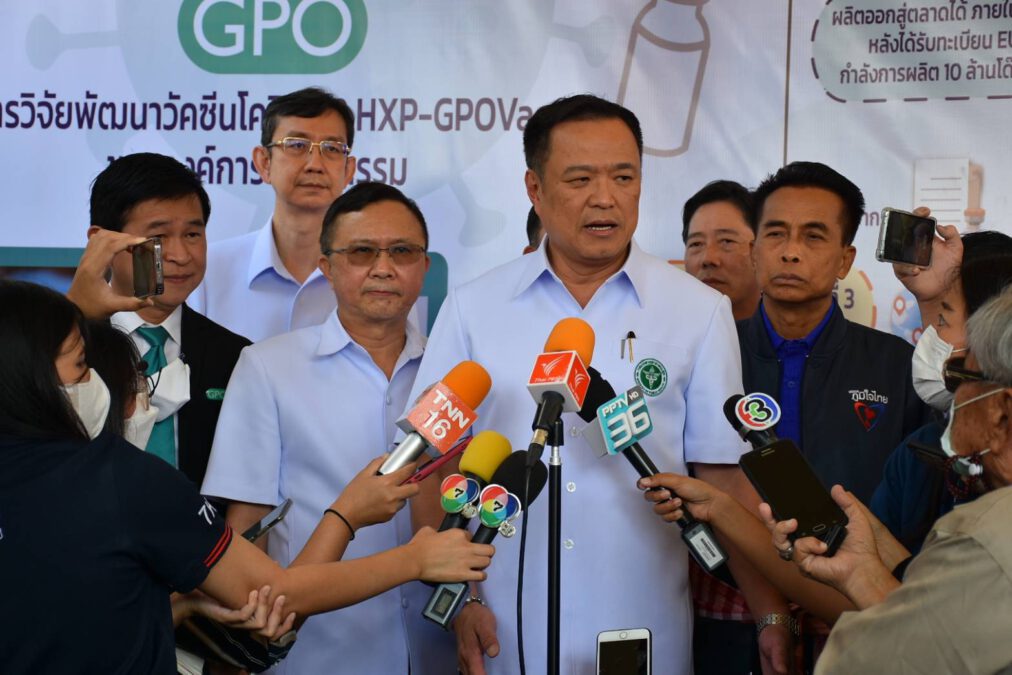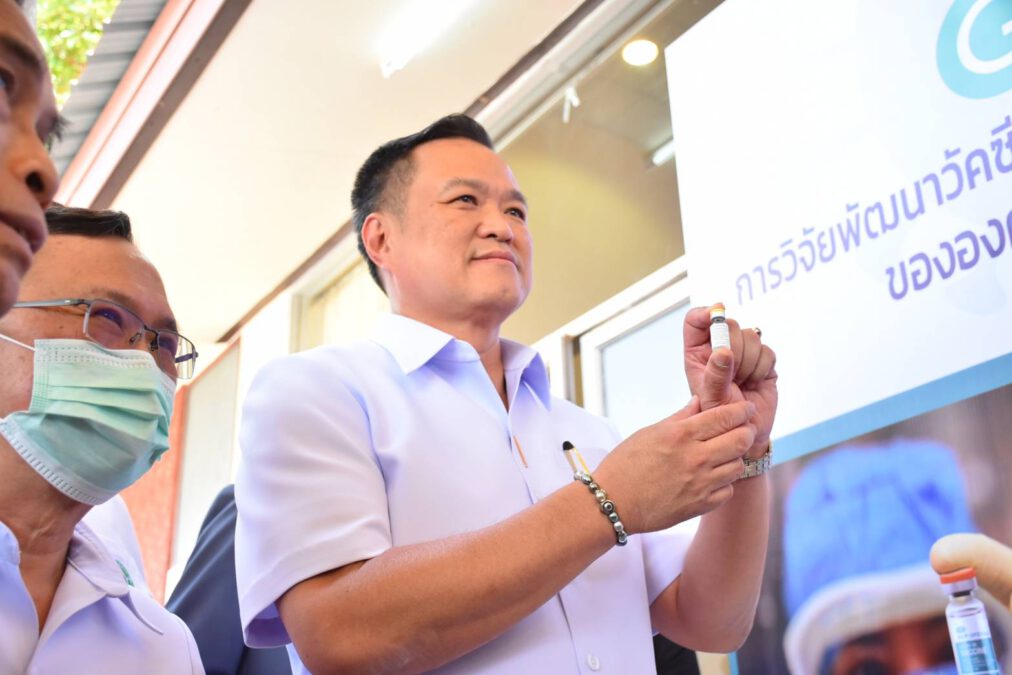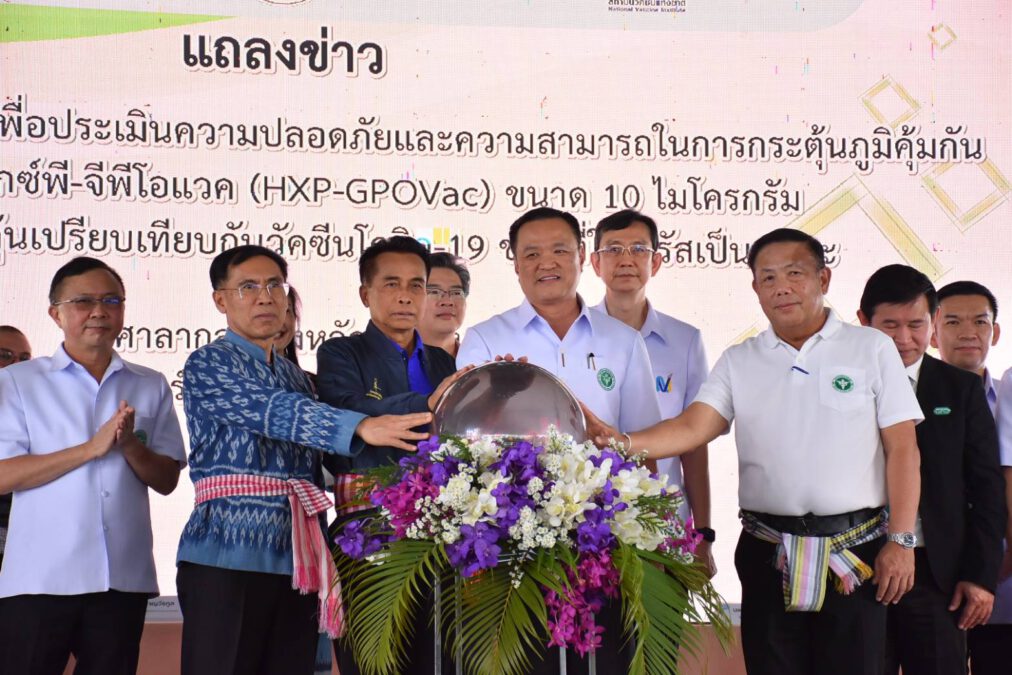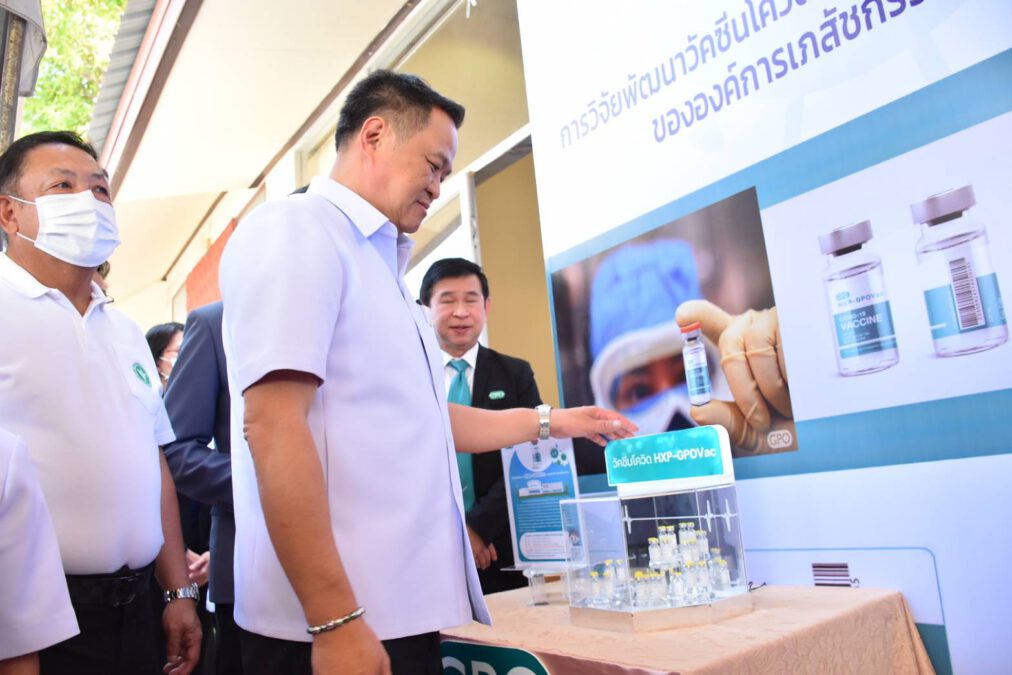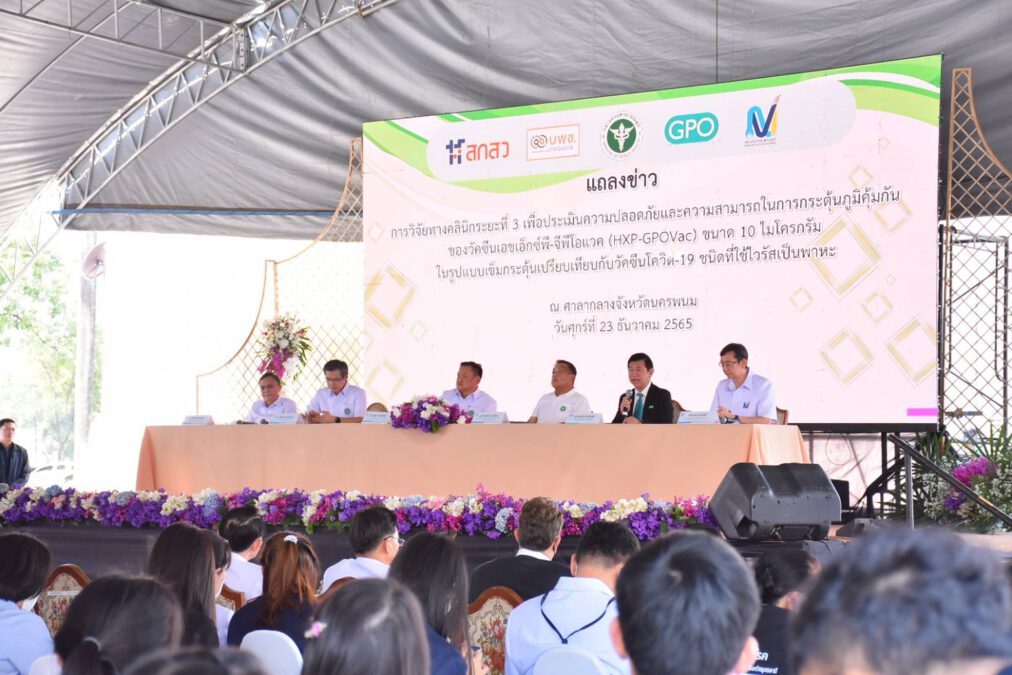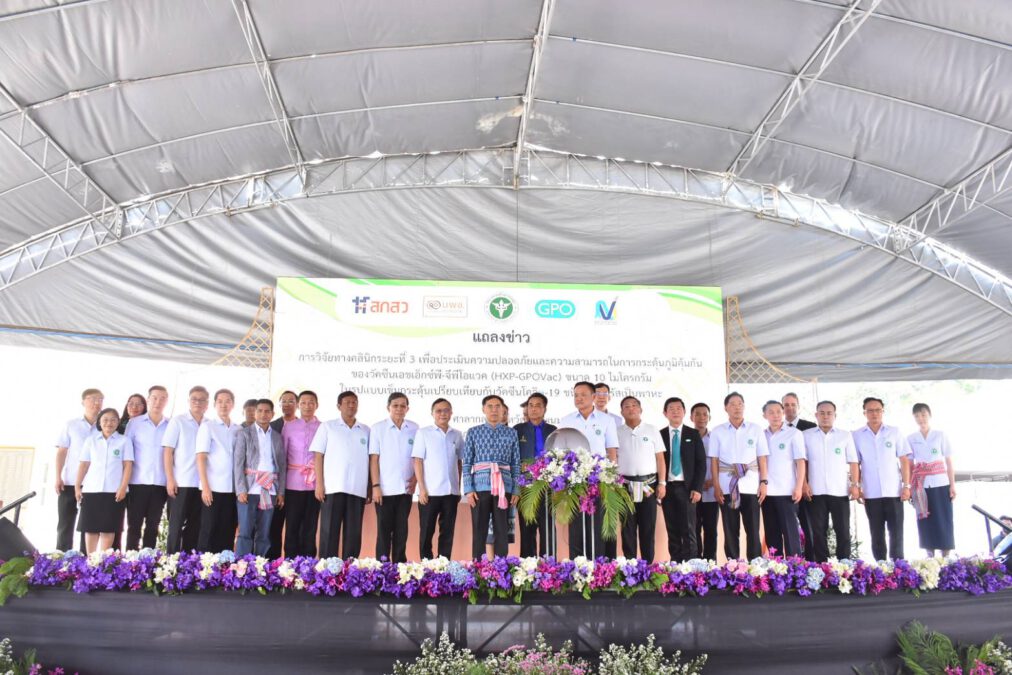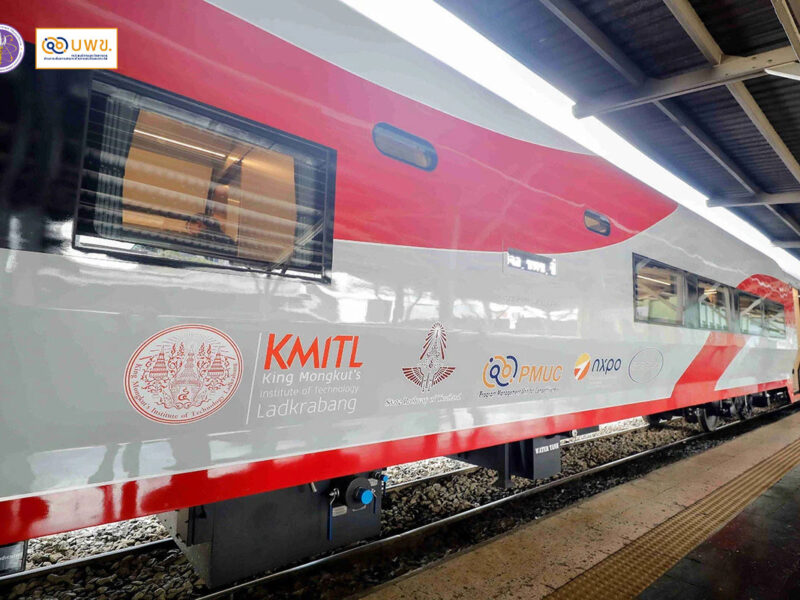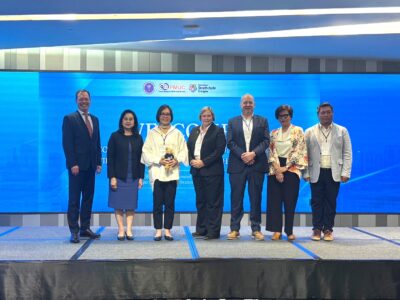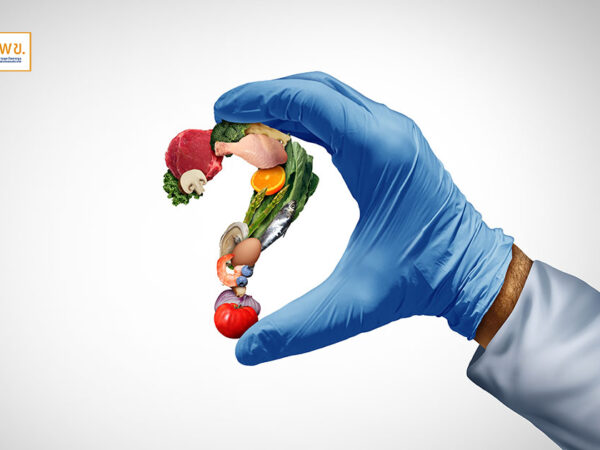The Pharmaceutical Organization commenced the Phase 3 clinical trial to evaluate the efficacy and safety of HXP-GPOVAC vaccine (HXP-GPOVAC) for the prevention of COVID-19 as a booster in 4,000 volunteers at the Nakhon Phanom Hospital after a successful phase 2 clinical trial that received research funding from the PMUC.
Mr. Anutin Charnvirakul, Deputy Prime Minister and Minister of Public Health revealed that the research vaccine type NDV-HXP-S for the prevention of COVID-19, developed by the Pharmaceutical Organization (HXP-GPOVac), has now entered phase 3 clinical trial. On December 23rd, 2022, a study was initiated to evaluate its efficacy and safety as a booster vaccine, which will be performed at Nakhon Phanom Hospital, Nakhon Phanom Province in 4,000 volunteers aged 18 years and over who have been vaccinated against COVID-19 with 2 doses of a main vaccine. If findings from this experiment show the tested vaccine to have the potential to be used as a booster vaccine, it will help Thai people have more access to vaccines, reducing the burden of importing vaccines from abroad, as well as promoting vaccine availability in the event of another outbreak in the future. It also demonstrates Thailand’s sustainable self-reliance with regards to vaccines.
Dr. Witoon Danwiboon, Director of the Government Pharmaceutical Organization, said that since the outbreak of COVID-19, the Government Pharmaceutical Organization has adjusted the vaccine production platform from hatched chicken eggs to be ready to support the production of COVID-19 vaccines on an industrial scale. The NDV-HXP-S vaccine project is a collaboration between PATH, Icahn School of Medicine at Mount Sinai (Icahn Mount Sinai) New York, University of Texas at Austin (UT Austin), USA, and vaccine factories in 3 countries: Brazil, Vietnam and Thailand. The prototype vaccine was developed from an innovation that augmented the Newcastle disease virus (NDV) to have the expression of the coronavirus spike protein, tuned with HexaPro technology (HexaPro) for more stability. The spike protein is the stimulator for the body to create immunity against COVID-19 virus.
The NDV vaccine technology was developed by Icahn Mount Sinai, while the HexaPro technology was developed by UT Austin, and the Government Pharmaceutical Organization produced the COVID-19 test vaccine HXP-GPOVac from seed virus received from the Mount Sinai School of Medicine. Mr. (Icahn Mount Sinai) using the same egg-based technology used to produce influenza vaccines at the biomaterials (vaccine) factory of the Government Pharmaceutical Organization, Thap Kwang Subdistrict, Kaeng Khoi District, Saraburi Province. Based on data from Phase 1 clinical trials in 2021 and Phase 2 clinical trials in 2021-2022, GPO-produced vaccines are safe and highly immunogenic. This information was used to select a suitable formulation for phase 3 clinical trials. If the trials are successful, the vaccine will be able to be registered with the Food and Drug Administration in 2023 and can then be distributed to end users thereafter. The Government Pharmaceutical Organization has the potential capacity to produce about 5-10 million doses of such vaccines per year and can expand production capacity in the future.
Assoc. Prof. Siree Chaiseri, Ph.D., director of Program Management Unit for Competitiveness (PMUC), said that the research on the HXP-GPOvac vaccine booster (HXP-GPOVac) for COVID 19 was supported by the Science, Research and Innovation Promotion Committee through the PMUC in phases 2-3 from clinical research. Such is a pivotal trial, utilizing randomized, controlled group, with blinded observers, to assess the effectiveness of immunostimulating abilities., and the safety of the 2019 coronavirus vaccine produced by the Government Pharmaceutical Organization (NDV-HXP-S), with Mr. Rangsi Padlee, deputy Director General of the Government Pharmaceutical Organization acting as the project leader. The research project has a duration of 2 years, which has been scheduled to be conducted from September 2021 to September 2023. This phase came after completing phase 1 and 2 of human research in March 2021 by the Faculty of Tropical Medicine, Mahidol University, to study the safety and efficacy of the vaccine in 460 healthy volunteers, aged 18-75 years, in order to select an appropriate vaccine formula. It is very encouraging that such research has reached the third phase and it is expected that the registration of the vaccine formula by the FDA will be achived in 2023, which will allow the country to reduce the budgetary burden on importing vaccines from abroad, with savings of more than 4,000 million baht per year.
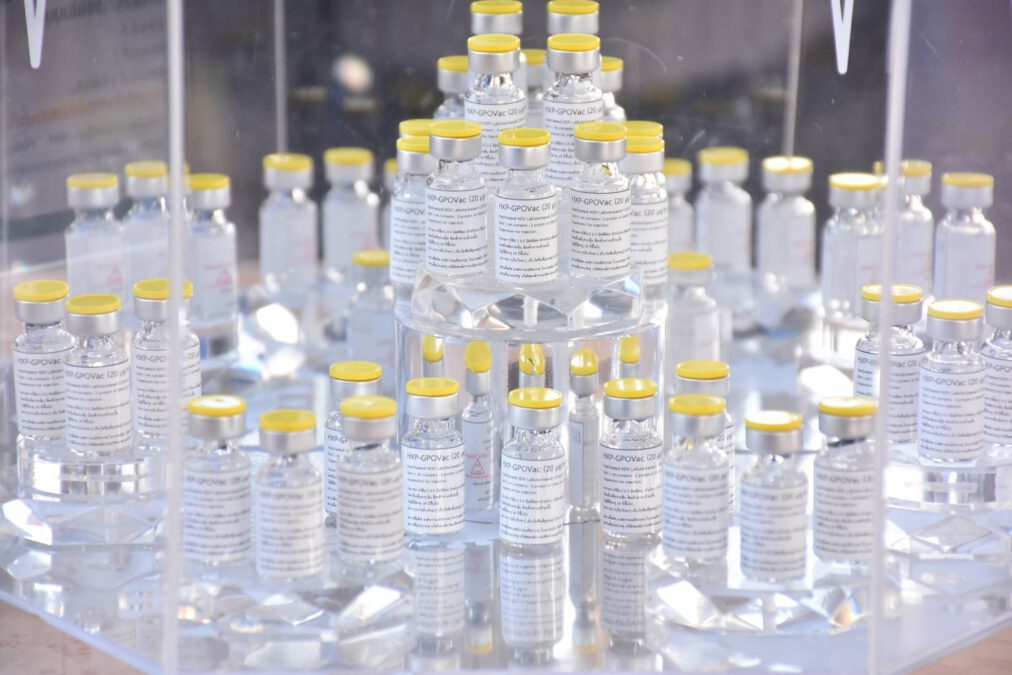
More information available at:
DEVELOP NEW DRUGS WITH CLINICAL TRIALS
When a drug or vaccine has been tested for efficacy and safety in a laboratory, and has been tested on laboratory animals, such as rats, rabbits, dogs and monkeys to ensure safety, it can then enter the clinical trial phase. Volunteer selection can commence, to select those who meet the criteria to participate in the research, which means volunteers will have access to medicines or vaccines that have the safety confirmed above minimum requirements before that drugs or vaccines will be released for distribution in the general market. The clinical trial (before drug registration) is divided into 3 phases:
Phase 1 is a safe dose study in volunteers.
Phase 2 confirms the effectiveness of the treatment, therefore requiring increasing number of volunteers.
Phase 3 confirms the safety and efficacy in a large cohort of volunteers in order to reflect the actual usage as closely as possible.

